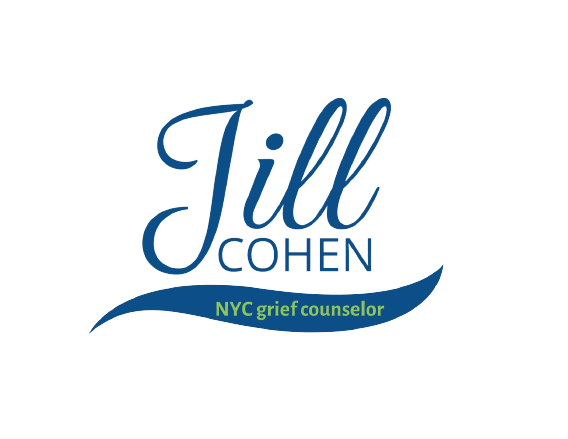Anxiety Can be One of the Stages of Grief. Some Face it Every Day.
5 Minute Read
Anxiety - An Additional Stage of Grief
For some people, after experiencing the death of a loved one, anxiety is a full-time experience, with little relief in sight.
Renowned author and Los Angeles-based grief expert Claire Bidwell Smith has spoken and written at great length about grief and anxiety. She has even suggested that anxiety could be considered an additional stage of grief.
I would love my readers to use this link to Claire Bidwell Smith’s website for more about “anxiety as a stage of grief.”
Death and Anxiety
Part of the New Normal
For many grievers, anxiety is a new and large part of adjusting to the life without their loved one. Prior to the death, those who are now grieving may have led a much more calm, stable life. The death one can bring on panic attacks and often debilitating anxiety.
Grief Linked with Anxiety
Grief and anxiety are very much linked together because losing a loved one puts people in a very vulnerable place. Daily life is changed. One’s mortality is confronted with the realization that we and all of our loved ones will eventually die. And it proves that life is quite unpredictable.
Symptoms of anxiety can greatly affect our daily activities, our work life, our relationships, our friendships, and our parenting.
Part of the reason for this grief-related anxiety is that grievers are under the assumption that they have to stop grieving so soon after the death and return to being their previous selves. This causes grievers to “stuff their feelings” way deep down inside. When the feelings eventually come up, they break open when we least expect them to. The feelings of depression, anger, and sadness are overwhelming.
When Are Grief and Anxiety Too Much To Handle Alone?
That’s when the importance of allowing yourself to actively grieve, and even reaching out for professional support from a grief counselor, becomes a priority.
If a griever allows themselves to go through a deep processing of the grief, there may be a sense of relief. It can feel like, “Wow, I really got it out,” or “I can breathe now.”
10 Ways to Overcome Grief-Related Anxiety
Bidwell Smith suggests 10 ways to overcome this grief-related anxiety.
These are adapted from her book, Anxiety: The Missing Stage of Grief, which I highly recommend.
1. Learn a little about how anxiety works.
Anxiety is the mind’s response to a fearful situation. Death and loss automatically sets off our fear-responders, putting you on alert and heightening physical sensations. Reminding yourself that this is a normal reaction and that it is our body’s way of managing stress can help keep you calm.
2. Check in with your grief.
Often, it’s the unprocessed grief that creates anxiety. Take some time to check in with yourself. Are there emotions or memories that you are avoiding out of fear or pain? If so, open yourself up to doing some work in these areas (on your own or with the support of a professional).
3. Make amends.
One of the reasons we get stuck in our grief and anxiety is because there is something left unsaid, or something we feel guilty about following a loss. Finding ways to ease your guilt and even make amends with your lost loved one can help with that pervasive sense of unease that comes with anxiety.
4. Embrace resilience.
Find ways to begin moving forward and healing. Sometimes we resist moving forward because it feels like we are letting go of our loved one. But we will never get over the loss of a loved one. Rather, we can build a meaningful life in their absence.
5. Write your way through.
There is serious power in writing through your grief. Writing helps us explore our own process, release tension, and connect with our lost loved ones.
6. Understand how your brain works.
Cognitive behavioral therapy is a useful way to get a handle on grief-related anxiety. Understanding how our thoughts work, and learning new methods to quell pervasive, repetitive, and catastrophic thoughts is a great way to managing your anxiety.
7. The power of meditation.
Meditation may sound like a soft approach, but it’s one of the more surefire ways to combat anxiety. Freeing yourself from pervasive thoughts and immersing yourself in the present moment can work wonders on the anxious mind.
8. Explore your connection to your loved one.
This one is integral to healthy grieving and helps quash anxiety in return. Finding ways to develop an internal or spiritual relationship with your loved one can bring you a greater sense of peace and compassion. Open up to the idea that your relationship is not over.
9. Get your affairs in order.
Facing our own mortality and putting a few things in place for our own eventual deaths will help us feel less anxious about the inevitable.
10. Don’t go it alone.
Grieving is a lonely state of being, but it doesn’t have to be. One of the reasons we get so anxious is because we don’t know how we’re supposed to do this. Reach out and find some support, either in a grief support group or one-on-one grief counseling with a professional.
Have you wondered how you can begin to overcome your grief? Take a look here:
You Have Resources Available to You
For more about the importance of grief counseling to help you through the emotions of grief and the anxiety which comes from grief, please download my handout by clicking the button below.




